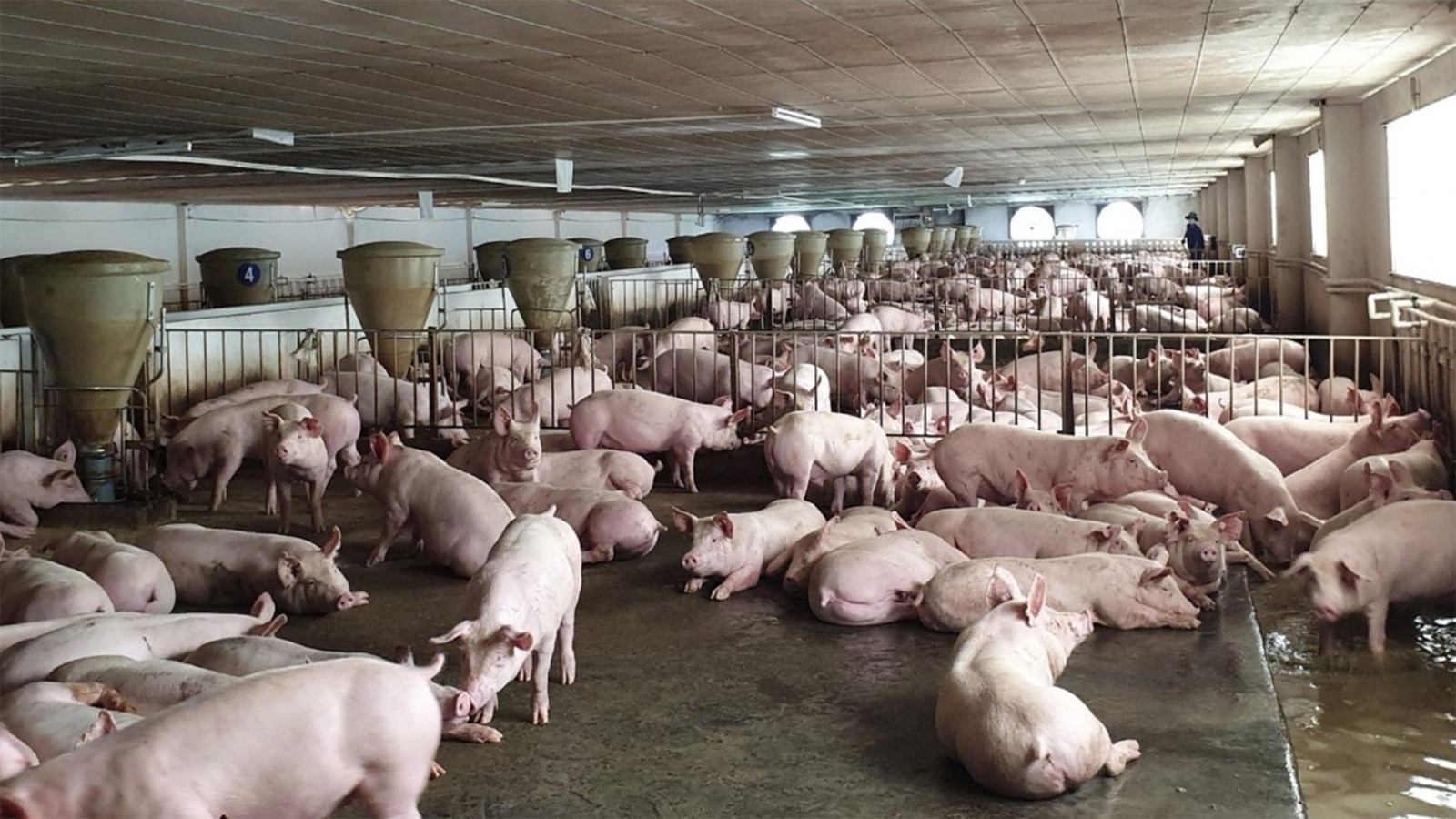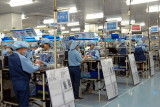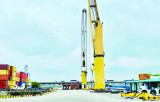The province develops safe livestock areas, adds value to agriculture
In recent years, livestock industry of Binh Duong province has developed into disease-free, sustainability and export-oriented livestock.

Pig farming in the form of cold, biosafety farms is strongly growing in the province
Good potential, many advantages
Binh Duong is located in the southern key livestock farming region, with abundant sources of animal and animal products. Additionally, there is a quite complete transportation system connecting regions inside and outside the province, very convenient for trade.
Although it is one of the provinces focusing on industrial development, in recent years Binh Duong's livestock industry has maintained stable development. The structure of provincial livestock industry has been strongly transformed from a household scale to a farm-scale animal husbandry that applies advanced technology and is disease-free. Currently, the total pigs raised in the province is about 974,000, of which high-tech farming accounts for over 60%; total poultry herd has about 13.6 million heads, of which high-tech application of livestock accounts for over 70%. From 2018 to present, the total pig herd increased by an average of about 9%/year; The total poultry herd increased on average about 7%/year.
According to Nguyen Thanh Binh, Deputy Director of Provincial Branch of Livestock, Veterinary and Fisheries, from the beginning of 2023, the province has not recorded dangerous infectious diseases in livestock and poultry, no rabies occurred in animals. Over the first 6 months of 2023, the province's livestock industry supplied to the market over 900,000 pigs and over 8.1 million broilers, local slaughter control of over 361,000 pigs and over 5.8 million domesticated birds. The livestock industry has fully met the market demand in the province, supplying a part of the consumption market in the Southeast region and aiming for export.
Many policies encourage development
Nguyen Thanh Binh added that in recent times, state management in animal husbandry and veterinary medicine has developed, farms are applying high technology, industrialization accompanied by processing industry and environmental protection. Accordingly, the Provincial People's Committee issued Decision No. 2692 approving the implementation plan of the livestock development strategy for the period 2021-2030, with a vision to 2045. This is an important basis for improving the quantity and quality of animal products, ensure the supply capacity for consumption inside and outside the province and aim for export.
Besides, Provincial People's Council also issued Resolution No. 09 stipulating policies to encourage agricultural development in the direction of urban agriculture and high-tech application agriculture. Accordingly, the preferential loan interest rate is equal to 70% of the minimum lending interest rate of Provincial Investment and Development Fund from time to time and decided by Provincial People's Committee.
In addition, the veterinary system is stable and maintained from the provincial level to the district and grassroots levels in all communes, wards and townships in the province. Provincial People's Committee maintains a policy of free vaccination against avian influenza, foot-and-mouth disease, swine cholera and disinfectants for household-scale livestock production facilities. At the same time, the province approves the policy of destroying diseased livestock in the absence of a decision to declare an epidemic, using local budget sources.
Up to now, the province has been recognized by the Department of Animal Health for a total of 13 animal disease-free zones in provincial localities with centralized livestock planning, such as: Bau Bang, Dau Tieng, Phu Giao, and Bac Tan Uyen. These include 5 safe zones for poultry, 4 safe zones for farmed animals, and 4 safe zones for dogs.
Currently, there are 173 breeding establishments recognized by the Provincial Sub-Department of Livestock, Veterinary and Fisheries as safe from animal diseases. Of these, there are 52 facilities safe from animal diseases for animals (accounting for about 20% of high-tech livestock farms), 121 facilities safe from animal diseases for poultry (accounting for about 63% high-tech livestock farms).
Nguyen Thanh Binh, Deputy Director of Provincial branch of Livestock, Veterinary Medicine and Fisheries, said that the Ministry of Agriculture and Rural Development needs to soon issue the project "Building animal disease-free farming areas according to standards of the World Organization for Animal Health”. In particular, it is necessary to specify the provinces and cities under the project and the project's funding according to the decentralization between the central and local governments to serve as a legal basis for localities to allocate funds for the construction and maintenance of disease-free livestock farming areas. At the same time, husbandry focusing on applying high technology, disease safety and linking along the value chain is an inevitable development trend.
Reported by Thoai Phuong - Translated by Ngoc Huynh
 Synchronous planning to promote sustainable development
Synchronous planning to promote sustainable development
 International Exhibition on Smart Furniture Solutions (SFS VIETNAM 2024): Greening the wood export industry
International Exhibition on Smart Furniture Solutions (SFS VIETNAM 2024): Greening the wood export industry
 Criteria of 2024 projected to early accomplishment
Criteria of 2024 projected to early accomplishment
 Import-export turnover reaches nearly US$53 billion
Import-export turnover reaches nearly US$53 billion
 Binh Duong vibrant with e-commerce week and super promotional month
Binh Duong vibrant with e-commerce week and super promotional month
 Training workshop on restructuring of industry and trade successfully organized
Training workshop on restructuring of industry and trade successfully organized
 Bank encourages checking transactions on applications
Bank encourages checking transactions on applications
 Ben Cat concentrates efforts to fulfill socio-economic development targets
Ben Cat concentrates efforts to fulfill socio-economic development targets
 Forstering a logistics center with regional connection
Forstering a logistics center with regional connection
 To clear bottlenecks, make good use of FTAs
To clear bottlenecks, make good use of FTAs







